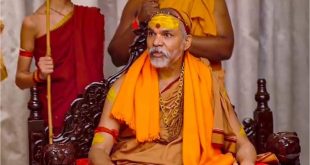 Assam Govt to Ban Polygamy: A Significant Decision
Assam Govt to Ban Polygamy: A Significant Decision
In a significant move, the government of Assam has taken a bold step towards banning polygamy, a practice that has persisted in the region for decades. The Governor of Assam has formed a five-member committee tasked with drafting the necessary legislation to prohibit the practice of polygamy, signaling the beginning of an earnest effort to curb this age-old tradition. What’s noteworthy is that this ban is not targeted at any specific community but aims to put an end to polygamy as a whole.
The Committee Members
The five-member panel includes legal experts, among them Devjeet Saikia and Nalin Kohli. The committee’s role encompasses providing recommendations on various aspects related to the issue and studying petitions filed by those opposing the ban. The committee will also engage in personal discussions with individuals who stand against the prohibition and consult with the Law Commission. Within a period of 45 days, this committee will present its report, which is expected to propose both formal and informal methods to enforce the ban on polygamy effectively.
Why Does the Assam Government Want to Ban Polygamy?
Chief Minister Himanta Biswa Sarma has pointed out that polygamy is prevalent in the Barak Valley’s three districts, as well as in the areas of Hojai and Jamunamukh. However, the practice has a significantly lower prevalence among the educated class and is less common among the local Muslim population. Sarma argues that polygamy is not an essential part of Islamic law. Upon closer examination, it becomes evident that the crackdown on polygamy in Assam was prompted by revelations during an operation against child marriages. It was revealed that many elderly individuals had entered into multiple marriages, with most of their wives being young girls from economically disadvantaged backgrounds.
The Prevalence of Polygamy
Recent data from the National Family Health Survey (NFHS) conducted by the International Institute for Population Sciences (IIPS) in Mumbai sheds light on the prevalence of polygamy in India. Despite efforts to curb the practice, polygamy still exists in India today, not just among Muslims but also among Hindus and other religious groups. According to the NFHS-5 data, the highest prevalence of polygamy is found in the northeastern states of Arunachal Pradesh, Assam, Manipur, Meghalaya, Mizoram, Nagaland, Sikkim, and Tripura. Among these, Manipur has the highest rate of polygamy.
During the NFHS-5 survey, more than 6% of women in Manipur reported that their husbands had multiple wives. The rate in Mizoram is 4.1%, Sikkim at 3.9%, and Arunachal Pradesh at 3.7%. Assam, while not having the highest rate, still records a significant 2.4% rate of polygamy.
Awaiting Nationwide Data
It’s worth noting that the last official data on polygamy in India dates back to 1961, when it was reported that 5.7% of Muslims practiced polygamy, which was lower compared to other communities. However, subsequent census reports did not collect specific data on polygamy. Recent findings from the National Family Health Survey indicate a decline in polygamy, but the practice has not been entirely eradicated.
In India, except for Islam, all other religions have a legal ban on polygamy. Muslim men have the right to marry up to four wives. According to the NFHS-5 data, 1.9% of Muslim women acknowledged that their husbands had other wives. In contrast, 1.3% of Hindu and other religious group’s women admitted that their husbands had multiple wives.
The Legal Perspective
In India, polygamy is entirely prohibited, except for Muslims. The Hindu Marriage Act of 1955 makes it a crime for a husband or wife to marry another person while their spouse is alive and without obtaining a divorce. Section 17 of this law stipulates that a person who marries another without a legal divorce can face imprisonment for up to seven years. The Hindu Marriage Act applies to Sikhs, Jains, and Buddhists as well. Similar provisions exist in the Special Marriage Act, which allows adults from different religions to marry. Under this act too, marrying another person without a legal divorce can result in imprisonment for up to seven years.
In conclusion, the Assam government’s decision to ban polygamy is a significant step towards gender equality and social reform. It reflects a growing awareness of the need to eradicate harmful practices and ensure that women are treated with dignity and respect. While the prevalence of polygamy in India has decreased over the years, it is essential to continue efforts to eliminate it entirely and ensure that the law is enforced effectively.
 Suspense Crime Sach Ka Dam
Suspense Crime Sach Ka Dam


